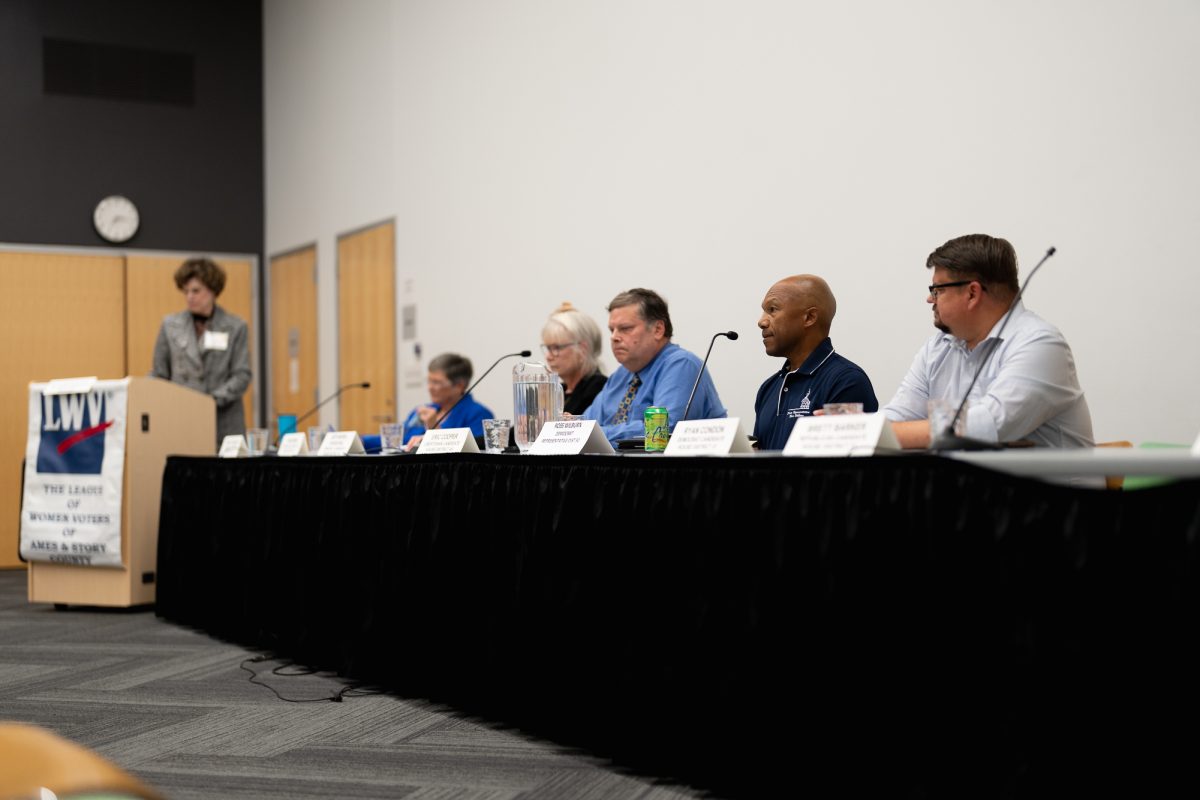Catt Hall controversy needs a solution
April 22, 1998
I’m writing because I’ve had enough. I’m writing because I know others have had enough. The events surrounding the fiasco in President Jisckhe’s office finally forced me into expressing my opinion on this issue. It is not to take a position on who was right and who was wrong. There was no right or wrong in that situation. I believe that both parties could have acted in a more reasonable manner, and it is becoming increasingly difficult to remain objective about this entire situation.
When I was young, I saw other children on the playground hit each other in the head with large red balls. I’m sure you did too. This usually caused great discomfort for the children that were struck on the head with the ball, but it was obvious that the children who threw the balls found great satisfaction in pursuing this activity.
So my question is this: Would you still throw the ball today? Of course not. You know better now, right? You’ve learned that life is filled with things that have expanded your mind and opened doors you would have never seen out there on the playground. But you can’t take back what you did when you were young, can you? You have to live past it, to forget your ignorance and move on; learn more, become an improved human being. This means that you would never engage in this silly ball throwing ever again, and you would prefer if people would focus on the good in what you’re doing now instead of concentrating a large amount of energy on something that not only happened in the distant past, but is completely insignificant to the greater good of the world today.
So why should we change the name of Catt Hall? Shouldn’t we look past the immature and foolish implications of the words of her youth and focus on the good she did for others in her later life? Don’t you think she realized how underdeveloped and misguided the ideas she had as a young woman were and chose to move on? She knew better, too. No one is prefect, and I’m sure everyone has said or done things either privately or publicly that they will regret for the rest of their lives. But you would like to be able to live your life past them, right? You would like others to extend to you that courtesy, and they would receive the same in return. Correct?
Let’s not forget the national monuments heralding slave owners, philanderers and lunatics. Libraries erected in the name of publicity and money. Operas and movies demonstrating the worth in violence against woman and property. Oh, wait … I’m not focusing on their real good, am I? What about the children that learn in those libraries, or people that find joy in learning about the founders of our country, or tired individuals finding solace in the 90 minutes of a movie? As far as that goes, why hasn’t anyone raised any hell about the Jacobson Building? Better yet, how about Howe Hall? Isn’t it ironic how can we afford a $1 million scoreboard that doesn’t give the score or the time of the game when our tuition continues to steadily increase? Paper-rock-scissors, money beats intelligence. Shouldn’t we really move our moral high bar to a more realistic level?
I think we could spend our energy on something more valid and far reaching than Catt Hall. Something that would have more far reaching effects than a name on a building. Because to many people, I’m sure that’s who Carrie Chapman Catt is. It is an unfortunate, but probable reality.
In recent years, the term “raising awareness” has come to be nothing more than a colorful euphemism for a group of angry people with a bone to pick shrouded under the banner of the First Amendment. I think this kind of “free speech” flies in the face of what our founding fathers set out to do. I think that free speech should center around making the world a better place; free from oppression, free from injustice, free from the clutches of an unfair government. In order to make the First Amendment really work for you, you have to fight for something really worth winning because if you don’t, your credibility is destroyed. Then you’re seen as a flag-waving liberal with a personal agenda. It makes the bureaucrats cringe to think of having to deal with the latter. (This may explain The September 29th Movement’s difficulty in getting an appointment with Dr. Jischke. And let’s face it … what would another meeting solve?)
To emphasize my point, what do we hope to do by making students take diversity classes? Don’t get me wrong, I’m all for understanding other cultures. But I think it should be by choice. The only thing reinforced by making a student take a class (any class) involuntarily is resentment both for the topic studied and the institution imposing this on them. You can’t make a child understand something if they don’t have the desire. You have to instill the desire within them.
The best way this university can help the students reach out is to stop forcing them to do so. Majority and minority groups need to reach out to others until there are no groups. The most important thing to remember is that we’re all people and we all have to live and work together. Chanting and raving about “racism this” and “racism that” will not make racism go away. This is a form of self-repression and is actually quite self destructive in personal terms and in terms of the movement itself.
Look, I don’t claim to have all the answers. I just know that I’m becoming painfully aware of what doesn’t work. This is our world and our children’s world, and if we don’t get on the right track soon, we won’t have much of a world to give them. Let’s remember that Martin Luther King said “I have a dream,” not “Let off some steam.”
The best way to tell someone not to be a racist is not to be one. The best way to have others learn about you is to wait for them to ask questions, not involuntarily shove the information down their throat. The best way to accomplish your goals is through understanding of your own position and through that of others, working together to find the common ground. If there is no common ground, then this issue isn’t really being seriously considered in the first place. In the case of Catt Hall, I think the battle has been fought and lost (for both the university and The September 29th Movement; there were no winners in this conflict), and everyone should move on and focus on goals more appropriate to the understanding of the students and of the university.
Joseph R. Benesh is a senior in architecture.






